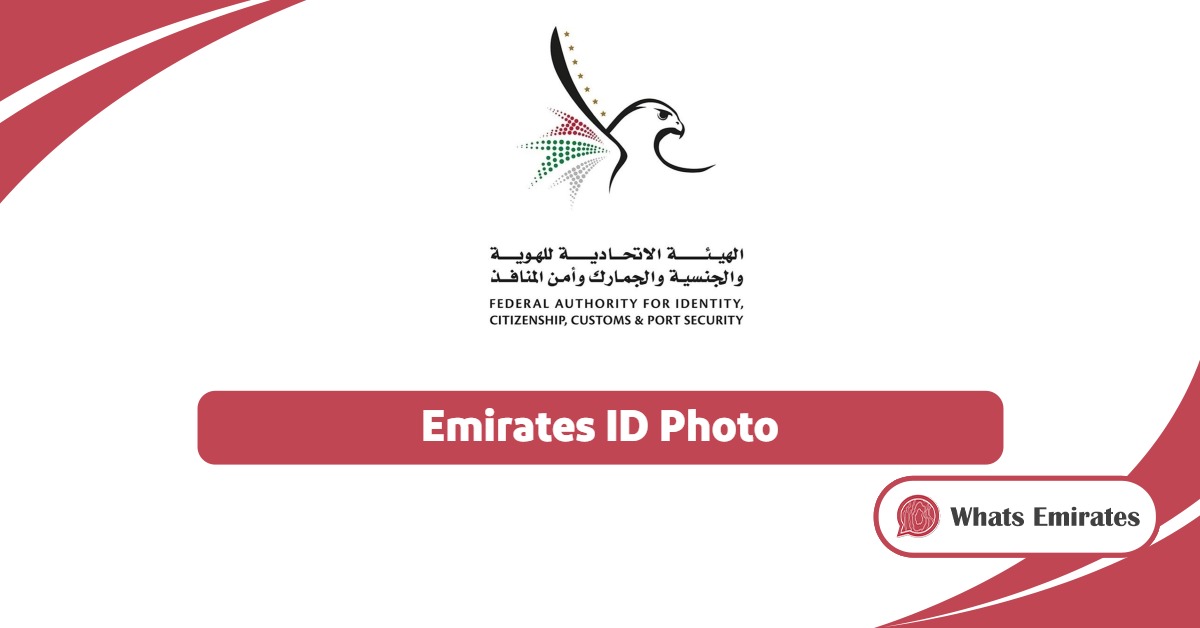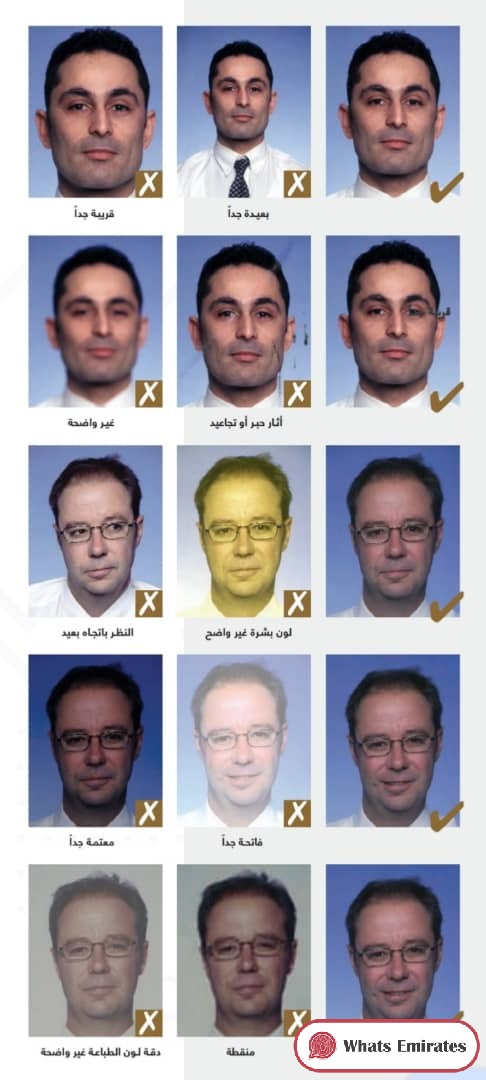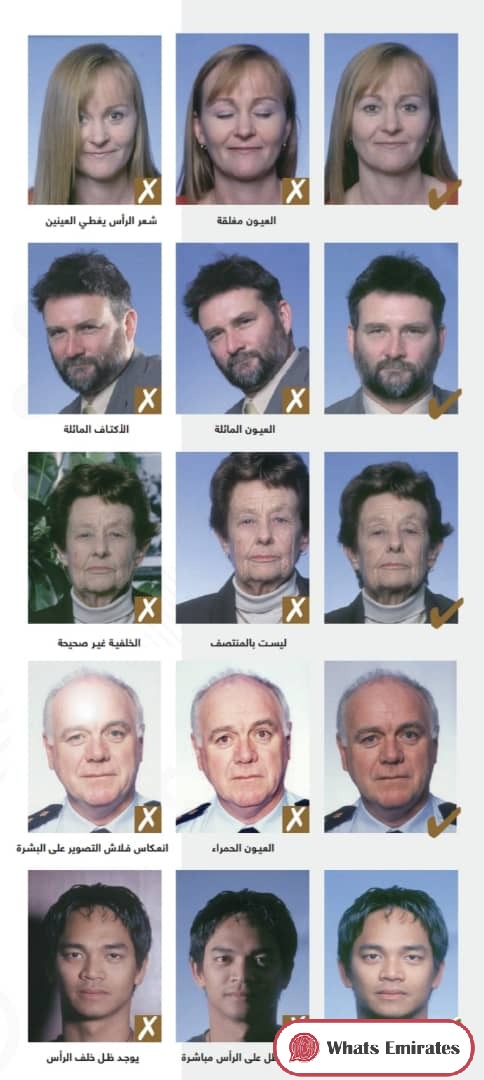Emirates ID Photo 2026: Size, Requirements and Samples

The Emirates ID photo is a crucial element that officially represents an individual’s identity. It helps verify personal identification and facilitates access to various government services, emphasizing the importance of obtaining a clear and accurate photo.
Table Of Content
Emirates ID Photo Requirements
The Emirates ID photo requirements include the following:
- The photo must be recent, taken within the last six months.
- The individual should maintain sharp focus and neutral expressions.
- Eye level should align directly with the camera lens.
- The photo should naturally reflect skin tone.
- The image must be captured with a high-quality digital camera and printed on photographic-quality paper.
- Eyes must be open and not covered by hair.
- The head and upper shoulders should be aligned with the camera lens without tilting.
- The photo must be taken under uniform lighting, free from shadows or flash reflections that cause red-eye.
- Eyes must be visible without any flash reflections on glasses, avoiding thick frames or tinted lenses, and ensuring only light frames are worn.
- Glasses must not obscure eye features.
- Head coverings are allowed only for religious reasons.
- Facial features from the chin to the forehead and both sides of the face must be visible.
- The photo must exclusively feature the individual, avoiding children’s chairs, toys, or other visible people.
- The photo should be taken with a closed mouth, with the head and gaze parallel to the camera lens.
Read more: Where to Find Your UAE Emirates ID Number | How Many Days It Will Take to get Emirates ID after medical test | List Of Emirates ID Biometric Centers in UAE | Al Barsha Center for Emirates ID | Yalayis Emirates ID Center| How To Contact Emirates ID Center
Emirates ID Photo Size Requirements
Here are the requirements for Emirates ID photo size:
- The width of the Emirates ID photo should be between 35 mm and 40 mm.
- The head and upper shoulders must be aligned to ensure the face occupies 70–80% of the photo.
- The photo must be clear, high-resolution, and set against a light-colored background with a clear distinction between the face and the background.
Read more: Emirates ID Benefits | How to Apply for an Emirates ID |Emirates ID for New Born Baby |Lost your Emirates ID | Emirates ID Status Check | Emirates ID Tracking | Emirates ID Fine Check |Emirates ID Renewal | Digital Emirates ID | How to Download Emirates ID Online |How to Update your Emirates ID
Accepted Emirates ID Photo Samples
Accepted photo samples can be determined by evaluating the following:
- Photo size and quality.

- Capture method and lighting.

- Use of glasses and head coverings.
Reasons for Emirates ID Photo Rejection
Photos may be rejected for the following reasons:
- Photo size does not meet the requirements.
- The photo is outdated, taken more than six months ago.
- The head and upper shoulders are not aligned with the camera lens.
- Eye level is not directed at the camera lens.
- The photo does not naturally reflect skin tone.
- The image lacks proper brightness and contrast.
- Overexposure or underexposure is present.
- Eyes are not clearly visible or are covered by hair.
- The background is unclear or not light-colored.
- There is no clear distinction between the face and the background.
- Shadows or flash reflections cause red-eye.
- Flash reflections are visible on glasses.
- Facial features from the chin to the forehead and sides are obscured by head coverings.
Download Emirates ID Photo Requirements PDF
You can check the full Emirates ID photo requirements through the following PDF link: icp.gov.ae The document includes complete conditions and illustrative samples. You can save the file to your device by clicking the save icon.
Read more: How to Change Mobile Number in Emirates ID | How To Change Your Emirates ID Photo | How to Add Emirates ID to Apple Wallet | Emirates ID Center Near Me | How to Book an Emirates ID Biometric Appointment |How To Reschedule Your Emirates ID Biometric Appointment Online
Conclusion
The Emirates ID photo is an essential part of identity verification and service accessibility. It is crucial to adhere to the specified photo requirements to ensure quick processing and avoid rejection. Attention to every detail ensures an accurate and clear photo for the application process.
Questions & Answers
The photo must be recent, taken within the past six months, of high quality, with a white or light-colored background. The head and shoulders should be aligned with the camera, ensuring clear and precise features.
The required size for the Emirates ID photo is 4.5 x 3.5 cm, with the face appropriately sized to ensure it is entirely visible and clear.
Yes, the photo must be in color, not black and white, with a preference for a completely white background to ensure clarity.
Yes, the photo must be clear, free from obstructions or wrinkles. The features should be distinctly visible without blurring or edits.
Yes, glasses can be worn, provided the lenses are not tinted or dark, and there are no reflections from the camera flash that may affect clarity.
Yes, head coverings are allowed for religious reasons only, but all facial features, from the chin to the forehead and both sides, must be fully visible.
The photo must have uniform lighting, evenly distributed without shadows or reflections that could obscure the face.
Yes, the head must be aligned with the camera, with shoulders in the same position. The expression should be neutral, and the face straight.
Yes, the background must be white or light-colored to create a clear contrast with the face, making it easily identifiable.
Yes, the eyes must be clearly visible, not covered by hair or anything else. They should be open naturally and clearly defined.
No, the photo must be recent, taken within six months of submitting the application.
Yes, the photo must be high-resolution, free from wrinkles, blurs, or any effects that could obscure the features.
Yes, the photo must be taken using a high-quality digital camera to ensure clarity and resolution.
No, the photo must be original and unedited, with no modifications made using photo editing software or filters.
Yes, a photo taken with a mobile phone is acceptable as long as it is high-quality and meets all specified requirements.
No, the expression must be neutral, with the mouth closed. Facial features should be clear without smiles or unnatural movements.
Yes, the eyes must be clearly visible, not covered by glasses or hair.
Yes, the face must be appropriately sized to ensure the features are distinct and clearly visible in the photo.
No, the photo must be clear, well-lit, and balanced, with no dark or overly bright areas.
No, the photo must only feature the applicant, with a clear, light-colored background and a good contrast between the face and background.
